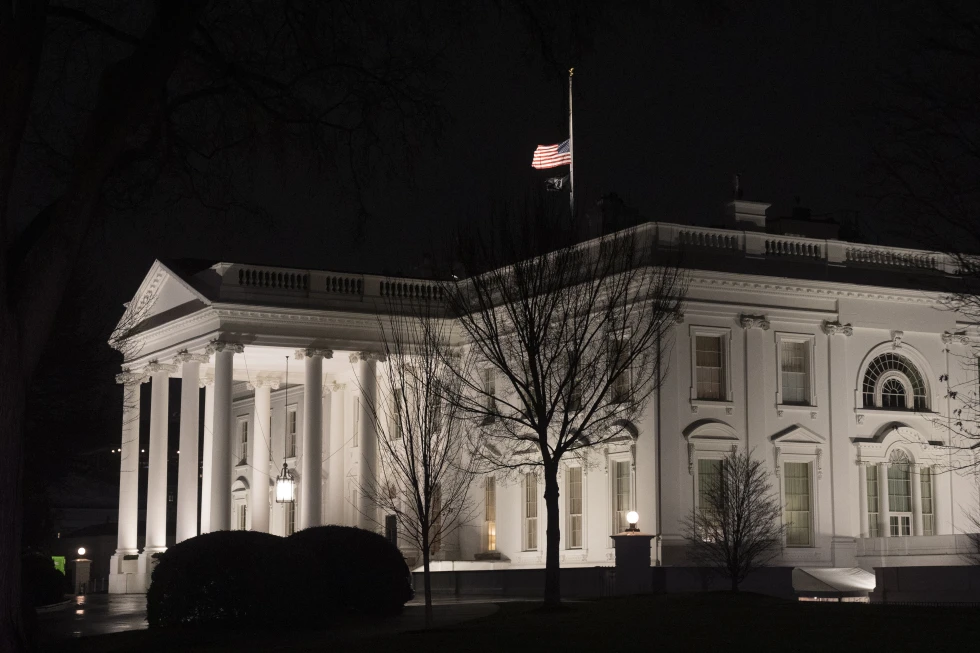President-elect Donald Trump has voiced dissatisfaction that flags would be flown at half-staff when he takes office later this month.
It is an activity set in place by President Joe Biden to memorialize the late President Jimmy Carter, who died on Sunday aged 100. Trump has no control over this schedule until he gets office.
Here’s what you should know about why flags are lowered after a president dies, who can issue the order, and how long the procedure takes:
Why are US flags flying at half-staff?
On Sunday, Biden directed that American flags be flown at half-staff in respect of the late former president. It is an accolade that signifies that the country or state is in sorrow.
The United States flag code specifies how to lower the flag to half-staff, including a 30-day period for current or former presidents to cover flags at federal government buildings and grounds, as well as at US embassies and other facilities abroad, such as military installations and vessels.
Flags can be lowered to commemorate the deaths of other leaders, such as the vice president, Supreme Court justices, and members of Congress, but the times are shorter.
Flags can also be commanded to be lowered in other circumstances, such as during a national disaster or on Memorial Day.
Since the United says flag code says that no flag should fly higher than the American flag on the same pole or adjacent, state flags are also lowered during specified times.
How long will the flags be lowered?
According to Biden’s declaration, the US flag would be lowered for 30 days following Carter’s death, until January 28.
With Trump’s inauguration on January 20, flags will be at half-staff for his first week in office.
Who chooses when to drop the flags?
According to the United States General Services Administration, the president, a governor, and the mayor of the District of Columbia have the authority to direct that US flags be flown at half staff.
What did Trump say about flags being lowered?
On Friday, Trump wrote on social media that “Democrats are all ‘giddy'” over the idea of lowering flags when he takes office as president.
“Nobody wants to see this,” Trump tweeted. He said, “No American can be happy about it.” Let’s see how it turns out. “Make America Great Again!”
When asked about Trump’s post during Friday’s briefing, White House press secretary Karine Jean-Pierre said Biden would not consider reversing or reevaluating the half-staff orders.
Can Trump decide to raise the flag?
Yes. The U.S. flag code requires that flags be lowered for 30 days upon the death of a former president. However, because the code is not mandatory, Trump could theoretically overturn it if elected president.
That’s what happened in February 1973, when then-President Richard Nixon chose to raise flags, which he had ordered lowered in mourning following the death of previous President Lyndon B. Johnson, before the 30-day mark in celebration of the first American prisoners of war released from Vietnam. The pause lasted only one day, and flags returned to half-staff for the next eight days.
Flags were likewise at half-staff when Nixon was sworn in for his second term in January 1973, as he had ordered them lowered following the death of previous President Harry S. Truman.
Has Trump already expressed concern about lowering flags?
Yes. Following the death of Arizona Republican Sen. John McCain — with whom Trump had a strained relationship — in 2018, the Stars and Stripes were briefly lowered to half-staff over the weekend before returning to full height the following Monday, while flags at the United States Capitol and elsewhere remained at half-staff.
Following concerns from members of both the Republican and Democratic parties, the flag was lowered to half-staff. Former presidents addressed at McCain’s funeral, but the senator’s family stated that they did not want Trump to come.









